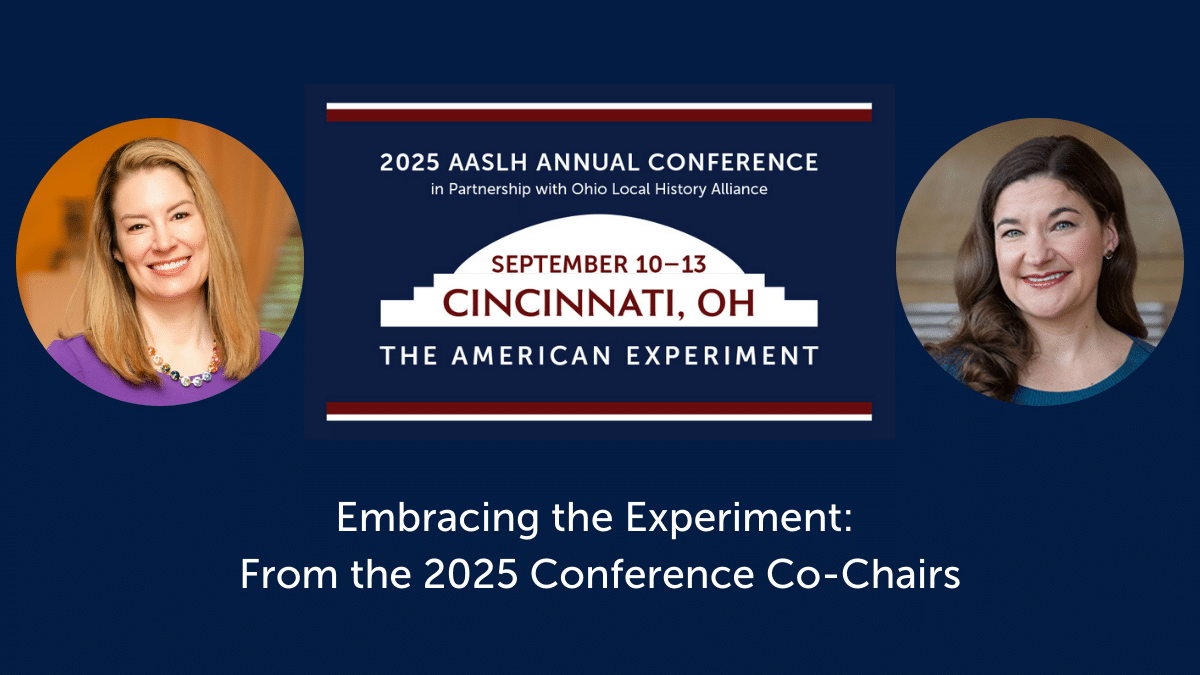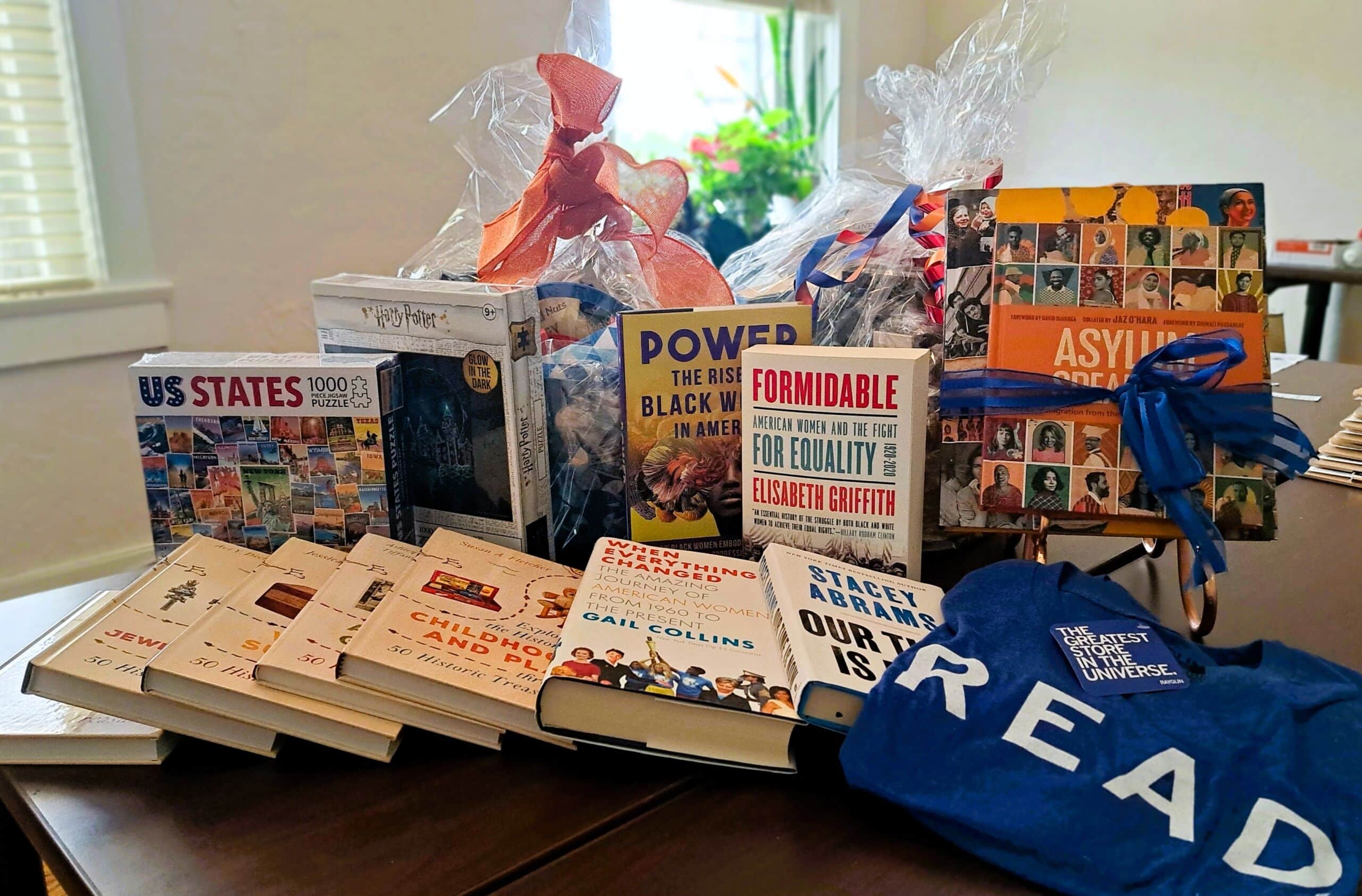
AASLH has partnered with the National Council on Public History (NCPH) to invite proposals for an NCPH‐sponsored Poster Session at the 2019 AASLH Annual Meeting in Philadelphia.
Deadline: May 22, 2019 Extended to May 29!
Submit a proposal at: http://ncph.org/aaslh-poster-proposal-form/
Questions about your poster submission? Email NCPH Program Manager Meghan Hillman at [email protected]
Questions about AASLH 2019? Email AASLH Program and Publications Manager Aja Bain at [email protected]
What is the Poster Session?
Built on NCPH’s model, the poster session at AASLH 2019 is an opportunity to share project-based work with attendees in a creative, visual format that invites lively discussion. It can be useful for works-in-progress, student-driven work, ephemeral or temporary projects, and collaborative or experimental work. It may be a particularly appropriate format for presentations where visual or material evidence represents a central component.
Why is the Poster Session Important?
Posters are an interactive and collegial way to display and discuss projects. In the sciences, posters are often used to present preliminary data on a research topic and gather feedback. Participants—whether seasoned museum professionals or students—can get responses to work in progress or additional feedback on finished projects. Students may choose to share projects or programs completed through classes, internships, or capstones.
When is the Poster Session?
The poster session will be held on Friday, August 30, from 9:15 am ‐ 10:15 am at the Philadelphia 201 Hotel. Set‐up will begin an hour before the poster session begins.
How Do I Submit a Proposal?
Please fill out the online form at http://ncph.org/aaslh-poster-proposal-form/. Along with contact information and a brief (~300 word) explanation of your poster, we ask that you provide a one-page CV or resume for each presenter and a simple visual mock-up of your poster (saved and uploaded as a PDF). This need not be the final version of your poster. You might think of it as a visual outline—a representation of the main points and key elements of your display.
When is My Proposal Due?
Poster proposals are due May 29, 2019. Upon submission you will receive a confirmation email; if you do not receive a confirmation email, contact NCPH to ensure your submission was received. You will receive notification of whether or not your poster has been accepted in June.

How Will My Proposal Be Judged?
The review committee will consider the persuasiveness of your abstract, the persuasiveness/quality of your visual presentation, and your project’s relation to major issues and questions in public history and the historical community.
Design Guidelines
While we want to encourage creativity in presentation, presenters must stick to these size and material guidelines to ensure that their posters can be displayed within the hall’s constraints and, as well, to reduce the cost of participation and shipping. Upon request in your proposal, one half of a six-foot table will be provided where participants can display websites, video, audio, objects, or other optional supporting materials.
Note: Basic wireless internet access will be available for the poster session. However, in case service gets interrupted, you should save any websites or videos to your hard drive so that you are able to navigate the site without internet access.
What are the Dimensions of a Poster?
No larger than 36” x 48”.
What Materials Should I Use?
Use laminated paper or poster paper. If you will need space to hang a poster, please be sure to include in your proposal a request for cardboard backing and an easel.
Formatting and Content Advice
- A good poster should introduce your topic, research questions, or goals; describe methodology and/or best practices; and suggest lessons learned that will be relevant to your own work and to others interested in pursuing such projects.
- Give the poster a title.
- Include a central paragraph that summarizes the whole project.
- Use images to illustrate your points.
- Caption the photos with a title, photographer, and date.
- Keep text brief. Edit carefully. The test of a good poster is if someone can read it in two minutes and understand your main points.
- Print out all text. Do not hand letter.
- Consider making copies of your poster as handouts. This will mean shrinking the poster to legal‐sized copies. Observers often want something to take away. Provide your contact information so that people can reach you later with additional questions, resources, and/or suggestions
Printing and Shipping
You have a few options for printing and shipping. You may print the poster at home, roll it in a poster tube, and ship it to your hotel or to the Philadelphia 201 Hotel (more details will be provided closer to the Annual Meeting.) You may also print your poster at home and carry it on the plane. If you do not wish to ship or transport the poster, you may email your poster file to a print shop in Philadelphia and pick it up there.



